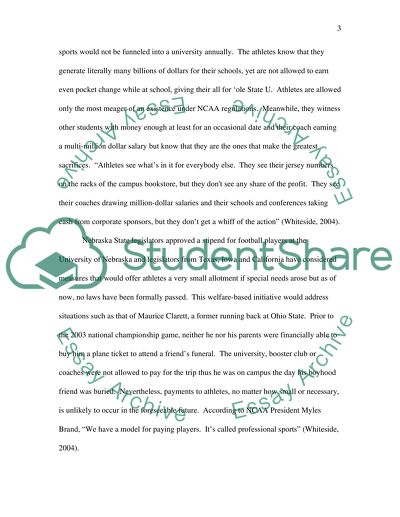Cite this document
(“Should NCAA Division Football Players Get Paid Assignment”, n.d.)
Should NCAA Division Football Players Get Paid Assignment. Retrieved from https://studentshare.org/sports-and-recreation/1539692-should-ncaa-division-i-football-players-get-paid-philosophic-essay
Should NCAA Division Football Players Get Paid Assignment. Retrieved from https://studentshare.org/sports-and-recreation/1539692-should-ncaa-division-i-football-players-get-paid-philosophic-essay
(Should NCAA Division Football Players Get Paid Assignment)
Should NCAA Division Football Players Get Paid Assignment. https://studentshare.org/sports-and-recreation/1539692-should-ncaa-division-i-football-players-get-paid-philosophic-essay.
Should NCAA Division Football Players Get Paid Assignment. https://studentshare.org/sports-and-recreation/1539692-should-ncaa-division-i-football-players-get-paid-philosophic-essay.
“Should NCAA Division Football Players Get Paid Assignment”, n.d. https://studentshare.org/sports-and-recreation/1539692-should-ncaa-division-i-football-players-get-paid-philosophic-essay.


